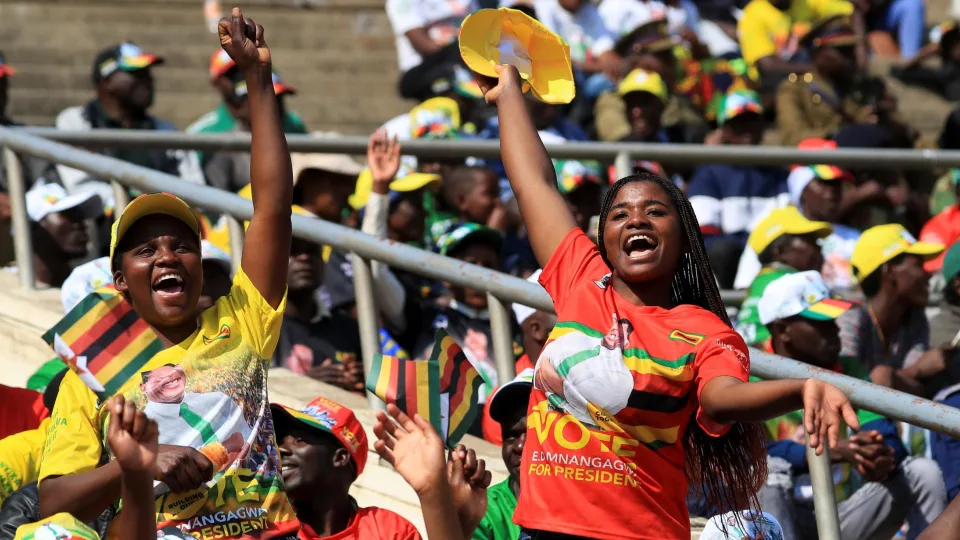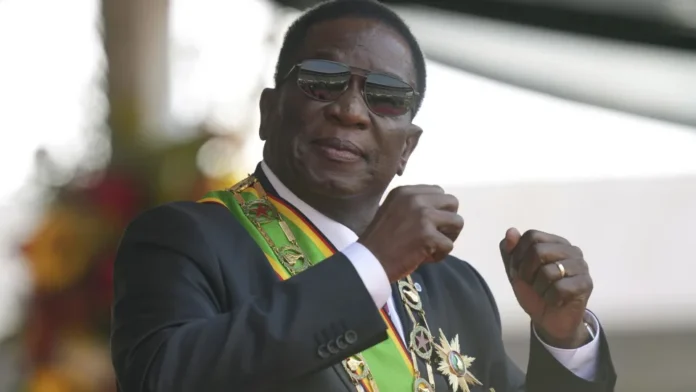Zimbabwe’s President Mnangagwa sworn in after disputed polls
Amidst a vibrant ceremony attended by multitudes of Zimbabwean citizens and regional dignitaries, including the heads of state from South Africa, the Democratic Republic of Congo, and Mozambique, President Emmerson Mnangagwa of Zimbabwe embarked on his second five-year term. This event marked the culmination of a fiercely contested presidential election, raising eyebrows both domestically and internationally.
Triumph in the Midst of Controversy
Mnangagwa, an octogenarian seasoned statesman often colloquially referred to as “The Crocodile,” clinched his second tenure as Zimbabwe’s head of state after securing over 2 million votes, representing 52.6% of the total ballots cast. Meanwhile, Nelson Chamisa, the primary contender from the Citizens Coalition for Change (CCC) party, garnered 44% of the votes, as reported by the Zimbabwe Electoral Commission.
Nonetheless, the aftermath of this electoral contest was anything but harmonious. Chamisa’s party vehemently repudiated the election results, alleging electoral malpractice and demanding fresh elections. These allegations found support from various international observers who asserted that the electoral process fell short of both regional and international norms.
Doubts Raised by Observers
A preliminary report by the European Union Election Observation Mission (EU EOM) articulated profound reservations about Zimbabwe’s electoral process. The report contended that “fundamental freedoms were increasingly abridged” during the elections and highlighted instances of “acts of violence and intimidation” that created a “climate of trepidation” during the polling.
The situation escalated with the apprehension of 41 election monitors by Zimbabwean authorities. These arrests followed a report by the Zimbabwe NGO Forum, which scrupulously documented anomalies on polling day, as per Amnesty International.
Opposition’s Stance
Amid this backdrop of controversy, the CCC opposition party made a momentous decision. They declared their intention not to contest Mnangagwa’s triumph in the courts, expressing doubts about obtaining justice through the country’s legal system. CCC spokesperson Promise Mkwananzi remarked, “Our judiciary is compromised… seeking redress in a biased court is futile.”
Instead, the CCC has opted to challenge the election results through political and diplomatic channels. Their primary demand is a fresh, equitable, and impartial election. Mkwananzi emphasized their intent to exert pressure at both diplomatic levels and within the nation itself, urging citizens to insist that their votes be honored and counted.

A Pivotal Electoral Encounter
The election conducted on August 23rd held profound significance in various respects. It marked the second electoral exercise in Zimbabwe since the ousting of authoritarian leader Robert Mugabe by the military in 2017. Mnangagwa, who played a pivotal role in orchestrating the coup that led to Mugabe’s removal, stepped into the leadership vacuum.
Global Concerns
The controversy surrounding this election has not eluded international scrutiny. Many nations and organizations have voiced their reservations regarding the electoral process and the ensuing political tensions. As Zimbabwe endeavors to solidify its democratic mechanisms, these concerns possess the potential to impact diplomatic relations and international support.
In Conclusion
To encapsulate, President Emmerson Mnangagwa’s inauguration for a second term in Zimbabwe may have been punctuated by a vibrant ceremony, yet it remains overshadowed by substantial controversy. The contested election results, disavowed by the CCC party and subject to international censure, underscore the challenges confronting Zimbabwe as it navigates the post-Mugabe era.
As the nation charts its course forward, it becomes imperative to address the apprehensions raised during this election and strive towards transparency, equity, and the safeguarding of fundamental freedoms within the democratic process. Only through such endeavors can Zimbabwe aspire to construct a more robust, stable, and inclusive future.







